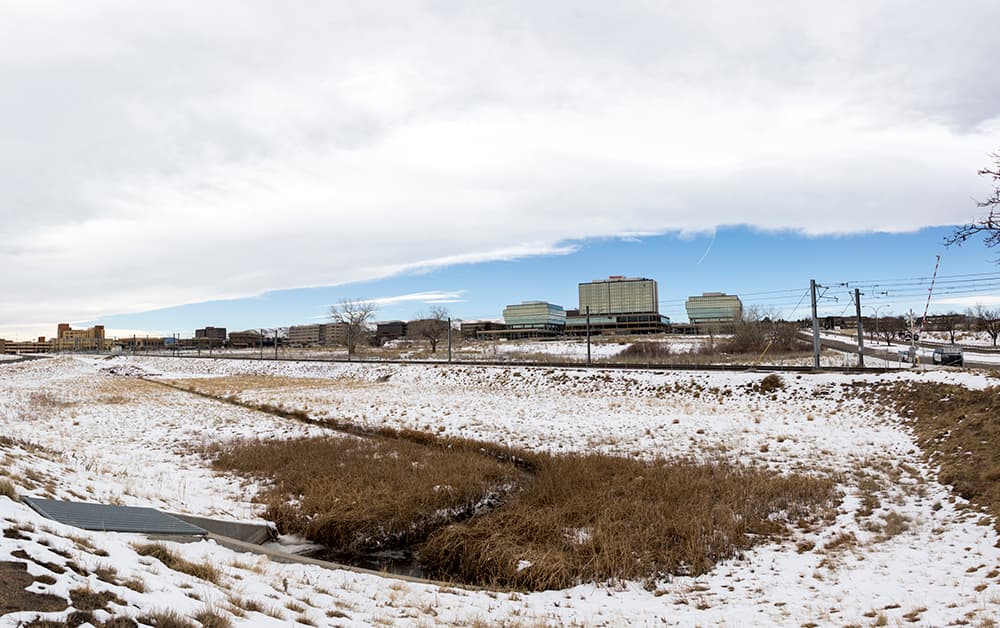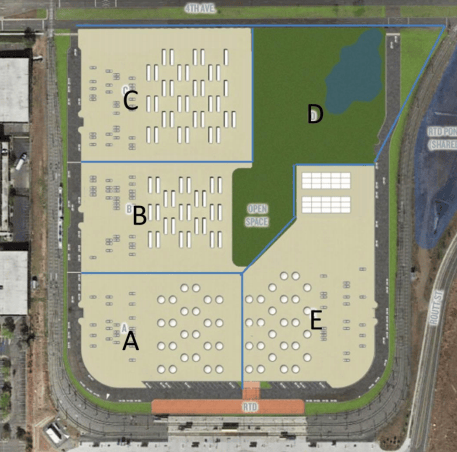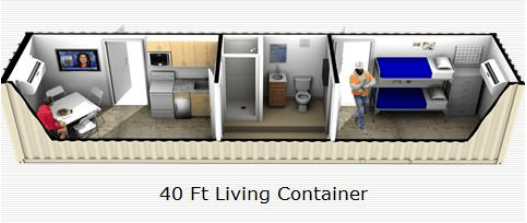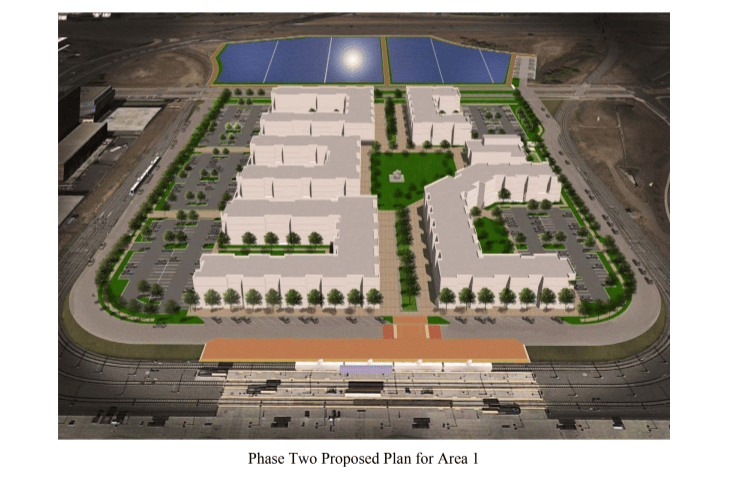
A plan to provide housing and services for hundreds of people experiencing homelessness in Lakewood got a crucial approval from the federal government on Tuesday, according to the Colorado Coalition for the Homeless.
It's not a done deal, but it opens the door for low-income housing at a scale that the Denver area has rarely seen in the recent past. The project would begin with a temporary campus of trailers and tents for people experiencing homelessness. Eventually, it could house some 600 affordable and supportive housing units.
Now, the nonprofit CCH is pulling together a financial plan to take on the $120 million project.
"We feel like it’s a pretty major step in the process. To ask us to fully develop a financing and operations plan — that’s real," said Cathy Alderman, spokeswoman for CCH. "That takes us one step closer to actually implementing something and fully realizing the vision."
The first phase:
On Tuesday, the federal government approved an initial application by the nonprofit. The group wants to take over 50-plus acres next to Federal Center Station on the W Line in Lakewood.
In the first phase, the nonprofit could build a temporary, solar-powered campus of housing and services for people experiencing homelessness.
That initial project would include trailers, geodesic domes and large, insulated tents on a large tract of federal land. The structures could house 250 people altogether, according to Alderman.

A northern section of the site could be turned into a solar farm to power the campus.
The nonprofit stresses that it's not planning a "tent city." The smaller structures would have individual bathrooms and showers, while the larger emergency shelters would have community facilities. The entire campus would be fenced and patrolled by security.
(For a deeper dive on the promise and pitfalls of temporary housing, refer to our previous coverage.)

The second phase:
The tents and trailers would only stand on the site for a matter of years. Eventually, the nonprofit hopes to build five apartment buildings on the site, providing up to 600 units of affordable and supportive housing.
That would be a huge undertaking, with construction starting as soon as 2019.
Colorado Coalition of the Homeless, one of the area's most prolific affordable developers, has built about 1,800 units over the last 20 years. This project alone is equal to a third of that total, although it would happen in multiple phases through 2021 or later.
The proposed permanent buildings would stand four floors tall and offer a mix of transitional housing -- units that are supposed to help people get on their feet after homelessness -- as well as permanent housing.

Lakewood's reaction:
The city of Lakewood has almost no ability to influence or change this plan, since it's happening on land owned by the federal government.
"Basically, we have no authority to regulate the future use of federally controlled land. We have no involvement in this federal decision," said spokeswoman Stacie Oulton.
"What the mayor and city manager have continually been doing is conveying that the coalition and the federal government need to have an inclusive and extensive public input on the proposal."
Alderman said that CCH plans to hold community forums so it can hear and respond to concerns.
In an earlier interview with The Denver Post, Mayor Adam Paul said he wanted to see a "mix of incomes," rather than dedicating the entire campus to lower-income housing.
In fact, the feds originally declared that the property was "unsuitable for homeless use" and intended to sell it to developers for "mixed-use and market-rate residential development," according to CCH. The federal government had even considered working directly with Lakewood on such a project, but the deal fell through.
Colorado Coalition for the Homeless sued, saying that the McKinney-Vento act obligated the government to make the land available for homeless services. They won -- and now they're one step closer to construction.
CCH is seeking a no-cost lease of 5 to 20 years for the first phase of the project. It then hopes to acquire the land permanently when it's ready to build the apartments, according to its application.












